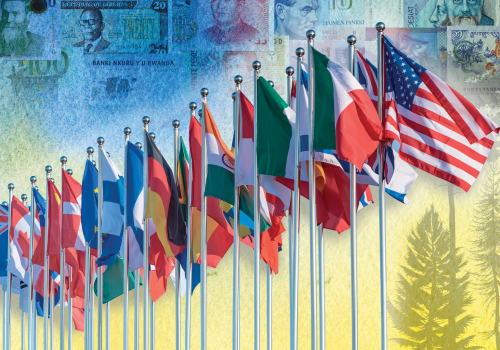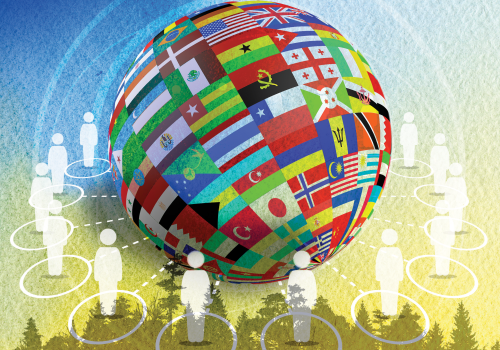How China would like to reshape international economic institutions
Despite being the second largest economy in the world and the largest trading partner for a majority of the world’s economies, China has an inadequate voice in traditional international economic institutions, leaving many of its experts and policymakers dissatisfied. For example, on a per capita basis, 170 out of 189 member countries in the World Bank Group’s International Bank for Reconstruction and Development (IBRD), have more voting power than China. This paper examines different aspects of the dissatisfaction that Chinese scholars and officials’ have with existing global governance institutions (GGIs), with a special focus on the World Trade Organization (WTO) and the International Monetary Fund (IMF). It also discusses the underlying aspirations that drive proposed changes to various GGIs according to discussions with Chinese experts.
In the IMF, China is pursuing greater representation in the decision-making process while in the WTO China seeks to revise rules so that the United States can no longer dominate the organization’s case flows. China is also prepared to navigate an increasingly fragmented and complex set of GGIs, including new ones it has established –New Development Bank or BRICS Bank and Asian Infrastructure Investment Bank (AIIB) or the BRI Bank, across different regions and issue areas.
For Bretton Woods Institutions to remain relevant and effective in the twenty-first century and address ongoing global challenges in a timely manner, China’s active engagement in these institutions is crucial. However, the lack or slow pace of substantial reforms in these institutions increases the risk of China becoming disillusioned and disengaging with them. Therefore, the United States alongside its G7 allies and Organization for Economic Cooperation and Development (OECD) countries should take meaningful steps to make existing GGIs more inclusive of all developing and emerging economies, with an emphasis on China, and also actively engage with regional multilateral development banks and financial institutions around the world.
Related content

At the intersection of economics, finance, and foreign policy, the GeoEconomics Center is a translation hub with the goal of helping shape a better global economic future.


